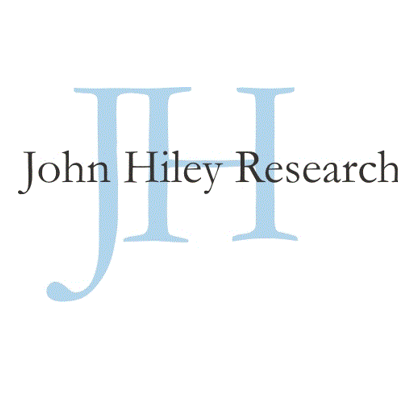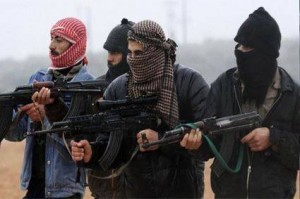by John Hiley
When the Islamic State advanced on Sinjar in northern Iraq threatening the Yazidi community with genocide, Kurdish forces from Syria entered Iraq to carry out a daring rescue. They fought off IS fighters on each side of a corridor to enable the escape of thousands of Yazidis.
The media described these forces in vague terms and neglected to report that the much praised Iraqi Kurdish Peshmerga had actually retreated in disarray.
Syrian Kurdish forces in the Kobane enclave, outnumbered by IS fighters defended the city before starting to turn the tide after the USA, previously hesitant to intervene, carried out air strikes in their support.
The Kurdish areas of Syria are known to the Kurds as Rojava, and include most of the countries oil resources. They were stable from early 2011, when Kurdish forces took control meeting little resistance from the Syrian armed forces, until the attacks from IS in the summer of 2014.
There are three geographically separated Kurdish areas, all bordering Turkey, the largest being towards the far north east of Syria. Uniting these would mean occupying non Kurdish areas and possibly provoking retaliation. The current Kurdish position is of defending their territory and consolidating their gains rather than further conquest or consolodation of the Kurdish areas, which would take them into non Kurdish areas. The main conflict is with IS which dislikes the strong secularism of the Kurds as well as the more enlightened view of the role of women in politics and society.
The main Kurdish force were the Democratic Union Party (Partiya Yekîtiya Demokrat in Kurdish, they are known as the PYD). The PYD were regarded as the Syrian wing of the Kurdistan Workers Party (PKK) which had, from the mid 80’s until 2013 waged war against the Turkish Government and which is prescribed by the EU, USA and Turkey as a terrorist organisation. Originally Marxist in ideology the PKK now describes itself as Democratic (or sometimes Libertarian) Socialist in outlook. The PYD has not been prescribed as a terrorist group.
Although the affiliation between the PYD and PKK is a fact, many Syrians have, over the years, joined the PKK in preference to the PYD and a substantial proportion of PKK fighting forces are of Syrian Kurdish origin. The PKK has moderated its stand over the years and in 2013 agreed to a ceasefire with the Turkish Government withdrawing its forces into Iraqi Kurdistan. The PKK has also dropped its call for Kurdish independence. The PYD does not call for independence from Syria, calling instead for a devolved system of Government through semi autonomous ‘Cantons’.
This followed a call by the PKK leader Abdullah Ocalan, who has been imprisoned in Turkey since 1999. During this time Ocalan has read and written widely and changed his views.
In Syria the PYD now describes itself as supporting ‘pluralism and the freedom of political parties’. While Ocalan remains a revered figure, the PYD leader Saleh Muslim has emerged as an articulate and charismatic leader in his own right.
In 2011 other Syrian Kurdish groups were encouraged by Iraqi Kurdish President Massoud Barzani to unite to form the Kurdish National Council. Later that year, again under the patronage of President Barzani the PYD entered an agreement with the newly formed Council to form the Kurdish Supreme Committee. The PYD and KNC have equal representation on this body which is, officially at least, the governing body of Rojava.
The military units of the Kurdish Supreme Committee are known as the Popular Protection Units. Although predominantly Kurdish, and with women’s brigades within their ranks they also include Arab Muslims and Christians as well as Assyrian Christians and now Yazidis. Officers are elected rather than appointed. There are claims that the militias are the PYD masquerading as a broader force.
The same accusation has been made against the local committees that have been set up to administer the Kurdish areas. The PYD for their part insist that their forces and politicians are loyal to the Kurdish Supreme Committee. In practice they refer enquiries to public officials even when they might be able to act on the basis of their political remit. There is some tension between the PYD and the Iraqi Kurdish Government, which the PYD accuse of representing narrow tribal interests.
Human Rights Watch visited the north eastern Al Jazira area of Rojava, and though not totally supportive highlighted issues that are relatively mild by Syrian standards.
They described the PYD as transiting ‘from a movement … into a governing body’ a process which posed problems. They visited two prisons which they said were well run, but highlighted some violence at the point of arrest and confusion between political acts and criminality in Syria. They were also critical of a legal system which was a mixture of Syrian law and their social contract which lacks clarity. They said that that when 16 and 17 year old fighters who had been sent away from the front line returned through choice, they had not always been turned away.
HRW described the roles of women in Kurdish areas as ‘incredibly welcome and very refreshing’.
The PYD has acknowledged the criticisms and published them on its website. It seems to be trying to conduct a localised debate against a background of a country in which animosities have brought about a great deal of brutality.
Because of their association with the PKK, the Turkish Government has taken a hostile stance towards the PYD. The PYD itself, noting that the Syrian National Coalition and Syrian National Council are based in Istanbul and close to the Turkish Government, are suspicious of the recognised Syrian opposition. As a result the PYD has described itself as neutral in the conflict.
Turkey has ensured that the PYD has not been allowed to take part in the Geneva talks, with strong support in this stance from Britain. I find this unfortunate as the group seems to have a level of credibility and a grasp on reality that is unusual among the parties to the conflict, as well as being a key player among the Kurdish community which represents just under 10% of Syrians. The Kurds have a history of taking a pragmatic approach to their situation and in this the PYD are no exception.
The PYD has accused the Turkish Government of supporting IS in the past and of allowing Jihadis from Europe passage into Syria while keeping its border crossings into the Syrian Kurdish areas firmly closed.
Syrian Kurds have been treated with suspicion by the West. But pledges to protect the Yazidi community, thousands of whom are under the protection of Syrian Kurdish forces, and the successful defence of Kobane may force the West to reconsider its hostile approach towards the them.

